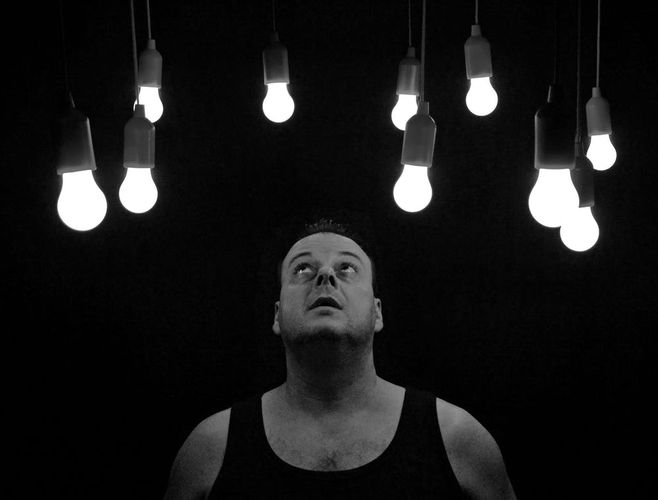
Awaken and Heal


HOW TO GET OUT OF A FUNK
Some questions are like daffodils. They pop up every year.
Like this one: "I've fallen into a funk. What do I do to get out of it?"
I thought the best way to illustrate the solution to rough patches would be to draw on a recent client conversation. Identifying details have been removed but the essence speaks to the heart of our innate capacity to bounce back from challenges.
C(all): I’ve fallen into a bit of a funk and can’t get out.
R(response): Oh, I’m sorry to hear that. If you don’t mind could you give me a few details. What’s your explanation of your funk?
C: I think the main issue that sent me into a depression is that our son and his family moved out of our neighborhood. They were just six doors away before. Now they’re a ten minute drive away.
I know this sounds silly, I mean they are still really close. But my grandchildren on their little feet are no longer running between our homes for a quick “Hello” or dropping round to play for an hour.
R: Goodness. Now I’m feeling sad too. Which goes to show that it’s human to have feelings.
Emotions are healthy and natural. We’re designed to have them. They’re part of our human design.
Our shared emotions remind us that we’re are all in this thing called ‘Life’ together.
The problem is we fall into an innocent misunderstanding about what causes our feelings.
We’re conditioned from birth to believe that external circumstances cause our feelings. But, in truth, we live in the feeling of our thinking.
Our misunderstanding leads us to believe that when we don’t have what we think makes us happy; like the pitter patter of tiny feet, or that red sports car, we’re doomed to be unhappy.
C: Hmmm. I’ve heard you say this before and it was helping. I was doing better at letting my feelings come and go. What do I do now?
R: Me too. I slip up. When I live in a deeper understanding about the fact that my feelings come from my thinking I feel so much better without anything in my life changing. And then I trip up. It’s human to trip up.
Let’s re-visit the fundamentals about where feelings come from.
“..the main issue that sent me into a depression is that our son and his family moved out of our neighborhood.”
R: I get it – your sadness began around the time your son moved. But your son moving caused your sadness. Let’s examine that.
It may look like your son leaving caused you sadness. But if son’s moving away from home causes sadness every parent would feel sad when a son left home. I don’t know about you but I’ve met parents who are overjoyed when a son leaves home.
C: Hmm. Yeah, I have friends who’s children leave home and they’re OK. It’s just that I started thinking I’ll be lonely without them.
R: Our feelings amplify the thoughts we’re buying into. So when we’re having an emotion it’s a piece of information to tell us about the kind of thoughts we’re investing in.
C: Yes, I see that. I did start to dwell on them leaving and I got more upset.
R: Nicely seen. Thoughts are like trains. A thought train of ‘my son is leaving home’ turns into ‘it’s a sad day’ which turns into ‘I feel so alone’. And with each thought our feelings sink.
C: Yes, I can see how I ended up going down the slippery slope of my thinking. The truth is my grandchildren are very dear to me, I love them. I know they love me too.
R: Now you’re talking. There’s so much to be grateful for.
When we recognize that the apparent ‘cause’ of our feelings is not the true cause we naturally settle down. Like a ship that rights itself when the ballast is evenly distributed our system is designed to re-set itself, calm down and recover.
Then we’re free to feel OK no matter what’s going on. We can look at what’s happening with fresh eyes and come up with new ideas to make the most of a situation, or make a course correction.
Does this make sense?
C: Yes. A moment ago I almost started to giggle when I saw how my own thinking was making myself sad. It had nothing to do with my son or my grandchildren leaving. I feel lighter now.
R: Beautiful. Your ship is righting itself. Your system is settling down. Remember; it’s normal to have emotions. Emotions add richness and depth to our daily life.
Understanding that our feelings come from buying into thought doesn’t mean we won’t feel sad or depressed from time to time. It means that we won’t get tossed around and drown.
Above all, our deep wisdom knows that the distance between us is a misunderstanding about who and what we really are. In truth we all live in the Heart.
Fiona Moore: I’m all in for living with greater consciousness. Transforming our minds, bodies and our world with the power of Love. For more articles like this subscribe to my personal blog.
Fiona Moore, Mentor, Healer, Teacher and Consultant teaches clients, students and practitioners connect with their true nature to heal their body and mind and live from their highest potential. Resources, insights and programs at: www.FionaMoore.com
